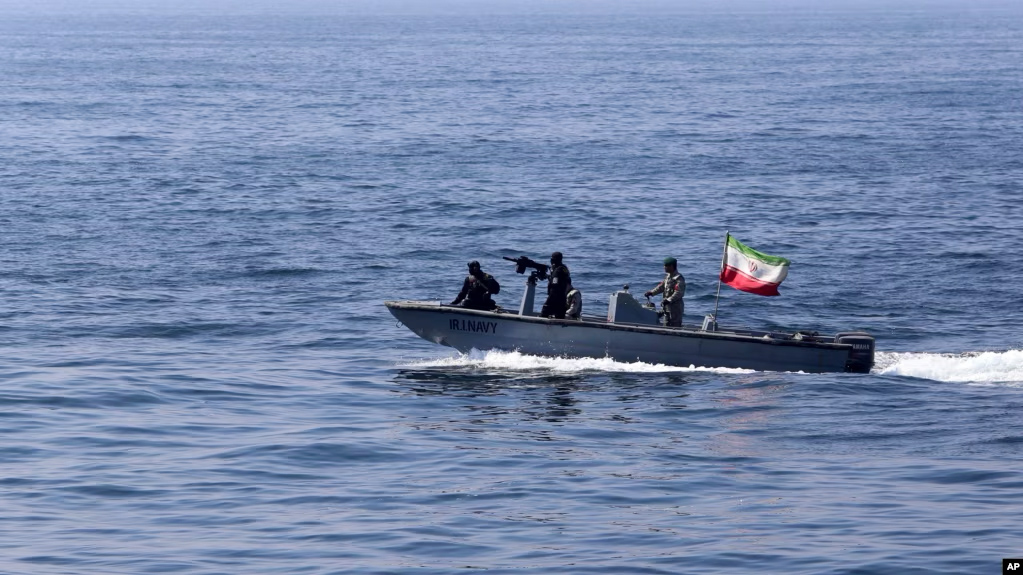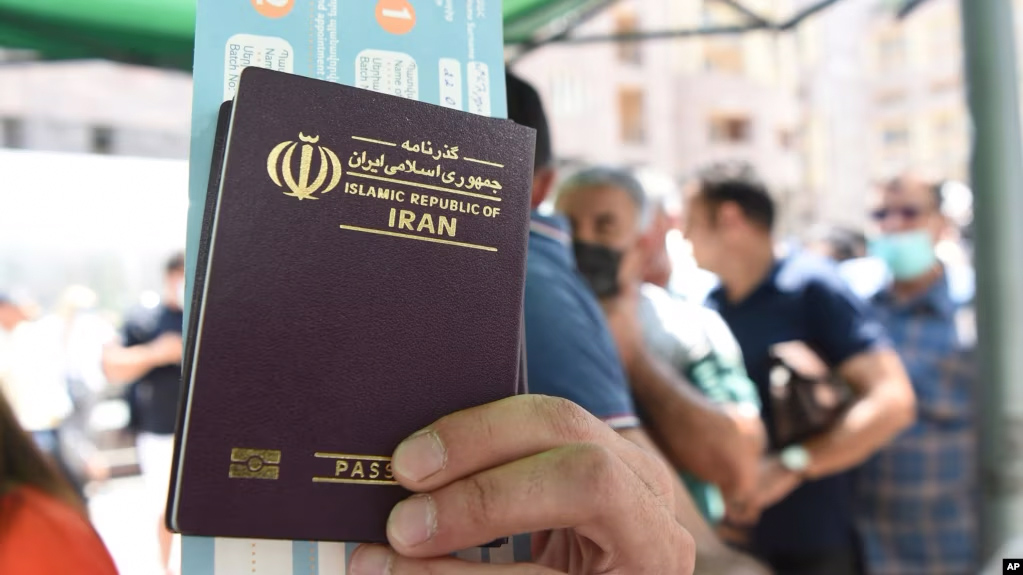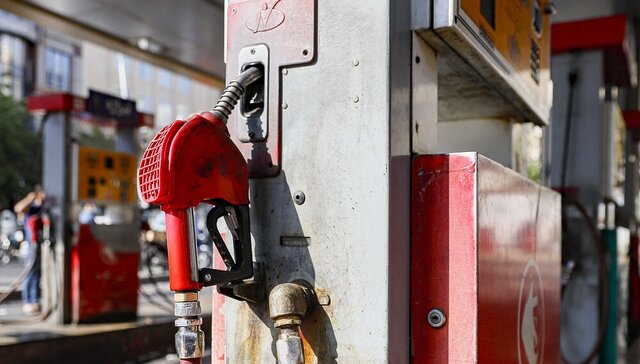
About the Invalid Votes
The editorial of Hammihan daily states that not announcing the official statistics of the recent parliamentary elections only increases people’s doubts and skepticism about the results, particularly in the light of the high number of invalid votes.
Days after the end of the elections on March 1, no official accurate numbers and statistics have been announced about the entire number of votes, valid/invalid votes, and the number of votes of elected individuals. This is strange as it is the first and only time this has happened— which increases people’s doubts and skepticism regarding the claims made by the election headquarters.
More interestingly, some of the released numbers and statistics are entirely incorrect. For example, it was announced that the level of participation in Tehran was 34.26% while the real number was 26.34%. No explanation or amendment has been made in this regard. Also, the interior minister announced that 5% of the votes were invalid, which is probably incorrect, as the percentage of invalid votes must be calculated based on the official statistics from each province — something that has not been done yet.
Interestingly, if participation in Tehran was 34%, the invalid votes would be about 44%. Nonetheless, the important point is that unlike in the past — and almost similar to the 2021 elections — the percentage of invalid votes is very high, which has a clear meaning and message.
In some areas, the invalid votes are much higher than the votes gained by those who won. In Tehran, it is said that the invalid votes were at least 16% to 20%. What message does this convey? The establishment must find out the reasons for the invalid votes by conducting polls and scientific studies and sharing its findings with the public.
But what is certain is that these votes cannot be considered as real participation in elections because it means that those casting invalid votes do not accept the voting process via the ballot box. So how come they went to the ballot box?
Some of them are against voting but think that either they have to do so or might gain some benefit from casting their vote. Some think that voting in general is good for the country but do not trust the electoral process. Some went to the ballot box because they thought they were obligated to comply with sharia laws, but they cast invalid votes.
The truth of the matter is that it is necessary to release the statistics based on the entire number of votes, the winners’ votes, and the voting process. Not releasing these statistics would not only not resolve any issue, but would increase skepticism about the announced numbers.
Gaza, Victim of the Presidential Election in the United States
The editorial of Arman Melli argues that US President Joe Biden is giving his unconditional support to the Israeli regime in the killing of the Gazan people because he wants to gain the votes of American Jews.
The United States’ recent measure of airdropping humanitarian aid over Gaza surprised the global community, which called it a mere show to repair this country’s reputation.
During the past months after Operation Al Aqsa Flood, the United States has given different kinds of military and logistical aid to Israel, but now that we are close to the holy month of Ramadan and a possible temporary ceasefire, the United States has taken a series of misleading and insulting measures in Gaza.
Airdropping food and medicine over the Gazans is an insult to the dignity of the 2 million residents of this city who have been deprived of the most basic essentials for more than five months. Since the launch of Operation Al Aqsa Flood on October 7, more than 31,000 Gazans have been martyred and more than 71,000 people have been injured.
The United States could simply use its influence over the Israeli leaders to make them accept a temporary ceasefire, but Washington’s hypocritical actions have been detrimental to a ceasefire in Gaza.
The reason for the United States’ support of the Israeli regime in massacring more than 31,000 defenseless people in Gaza lies in the US presidential election.
Democrat and Republican candidates in the United States have launched their campaigns in different states and need the help of the Zionist lobby and American Jews.
Despite Biden’s extensive collaboration with the Israeli regime in massacring Gazans, the Zionist lobby in the United States is more in favor of Republican candidate Donald Trump.
US polls show that Trump’s chance of winning in 2024 is higher than Biden’s. Trump, who was the US president from 2016 to 2020, played a role in bolstering extremist parties and trends in Israel. Now Biden’s only winning card for being re-elected as US president is his unconditional support for the Israeli regime in killing Gazans.
During the past five months, on Biden’s order, the United States has vetoed the drafts of the UN Security Council’s resolutions in favor of a ceasefire in Gaza. Regional organizations, including the Organization of Islamic Cooperation and the Arab League, have offered solutions for ending the crisis in Gaza.
Currently, Gaza is the victim of the US presidential election and both candidates are seeking to gain the support of the Zionist lobby by supporting the genocidal policies of the Israeli regime.
Efforts to Pressurize Tehran Over Its Nuclear Program
The editorial of Arman Melli focuses on the recent criticisms of Iran’s nuclear program, explaining that Western countries are trying to keep the pressure on Tehran in this way.
The seasonal meeting of the IAEA Board of Governors once again made Iran’s nuclear program one of the most important headlines in the world and representatives of Western countries and the IAEA’s director general expressed concern over the increase in Iran’s enriched uranium stockpile. Some Western media outlets claim that Tehran has achieved nuclear weapons capability, trying to create a security atmosphere against Iran at the regional and global level.
Despite all the worries regarding Iran’s peaceful nuclear program, it does not seem that Western governments, headed by the United States and Europe, intend to push the issue so much so that a resolution is issued against Iran.
Because of the developments in Gaza and the repercussions of Israel’s destructive attacks on the Gaza Strip, as well Russia’s war on Ukraine, Western governments are not after another challenge or crisis in the region. And it seems that the IAEA Board of Governors would only issue a strongly critical statement against Iran.
On the other hand, one of the IAEA’s main criticisms against Iran is the issue of inspection and cooperation with the agency. The truth is that Iran has fulfilled all its obligations in the framework of the NPT. What has been suspended are the parts in compliance with Iran’s nuclear deal with Western countries (JCPOA).
When Western countries are not fulfilling their obligations in the JCPOA, they cannot expect Iran to maintain its cooperation with the IAEA in compliance with the nuclear deal. Western countries are seeking to raise the issue of Iran not cooperating with the IAEA to imply that Iran’s nuclear program is of a military nature, making it a security issue for the region and the world.
Sluggish Housing Market
The editorial of Jahan Eghtesad predicts that there will be an inflationary recession in the Iranian housing market during the new Iranian year (starting on March 21).
After the sharp increase in housing prices and skyrocketing inflation, we have been witnessing a recession in this market with a considerable drop in transactions, while, according to experts, there has even been a drop in prices as well. Given the forex fluctuations and rising inflation, it seems that this recession is going to continue for at least the first half of next year.
In fact, in recent years, both the government and the private sector have been interested in the housing market.
The private sector is clearly after investment in this market to provide for its own interests, although in recent years there has been a significant decline in investments in this field because of skyrocketing prices and the decrease in people’s purchasing power.
As for the government’s role in the housing market, it has not fulfilled its promises as yet. In fact, it will take much longer for these promises to come true. On the other hand, as a result of the government’s failure in previous housing projects, it cannot play a serious role in this sluggish market.
Moreover, banks that used to play a significant role in the growth of the housing market by offering banking facilities are no longer active in this field. All these factors indicate that the housing market will be depressed next year. The economic conditions and the inflation rate indicate that there will be an inflationary recession in this market next year.

Iran, Russia, China Joint Military Drill, Along With Houthi Attacks

Along with the continuation of Iran-backed Houthi attacks on ships in the Red Sea, China, Iran and Russia announced that from Tuesday they would hold a joint military drill in the Gulf of Oman and the Arabian Sea, aiming to provide “maritime economic security.”
The Russian Defense Ministry announced that a group of Russian warships has entered Iran’s waters for taking part in a military drill with Iran and China in the Gulf of Oman and the Arabian sea.
According to this statement, the military drill called Maritime Security Belt 2024 would start on Tuesday and would include several warships.
According to IRNA news agency, the purpose of this naval drill is to promote security in the region and expand multilateral cooperation between participating countries which will create a maritime community with a common future.
IRNA news agency also pointed out that other goals of the drill include countering piracy, naval terrorism and exchanging operational and tactical experiences.
This is not the first time that Iran, Russia and China are holding a joint naval drill. Last year too, these three countries held a joint drill for providing maritime security in the Gulf of Oman.
Prior to that, these three countries held the drill referred to as Maritime Security Belt 2022 in the northern Indian Ocean in which the naval forces of the Iranian army and the IRGC took part.
The joint drill of these three countries is held this year while tensions have escalated in the region with the war in Gaza reaching a critical point.
The Iran-backed Houthis in Yemen have launched multiple attacks against commercial ships in the Red Sea and the Gulf of Oman on the pretext of the war between Hamas and Israel and in support of Palestine.
Mehr news
Radio Farda
Government to Withdraw Money Directly From Bank Accounts of Veilless Women to Punish Them

Parliament Member Amir Hossein Bankipour said that a woman who refuses to wear the hijab would be fined 3 million tomans, and “this fine would be directly withdrawn from her bank account.”
He noted that in case there is not enough money in the veilless woman’s bank account, she will be considered a “debtor” and has to go to court.
Bankipour also stated that this is a new punishment included in the Parliament’s “Hijab and Chastity” bill.
Speaking on a television program, this parliamentarian then clarified that the bill would be ratified and implemented in the Iranian new year following the confirmation of the Guardian Council.
Meanwhile, Farhikhtegan daily published a report in this regard saying that the judiciary would not be in charge of carrying out the punishment for veilless women.
This responsibility lies with the police who upon identifying the person who has violated the hijab law, would determine her national code and personal data and then issue a fine of 3 million tomans which would be deducted from her bank account afterwards, based on the Farhikhtegan report.
The same report elaborated that a “pseudo-police” authority would be missioned to handle complaints filed by women from whose bank accounts money has been deducted.
One of the drafters of the “Hijab and Chastity” bill remarked that the 3 million toman fine is not the punishment for women without hijab only; it also includes those with “improper” clothing “for instance, if the leg can be seen, if the neck can be seen, etc.”
It is notable that a number of UN human rights experts, including Special Rapporteur on the situation of human rights in Iran Javaid Rehman has already expressed concern over the hijab bill and its punishments, calling it “gender apartheid.”
Iran International
Iran’s Passport Ranks at 190

The Financial Advisory Institute of Nomad Capitalist announced in its latest ranking of different countries’ passports that Swiss citizens have the most powerful passports in the world. The Iranian passport ranks at 190.
In this ranking, in addition to the ease of travelling to other countries, indexes like taxation laws, global appeal, dual national citizenship and personal freedom are also considered — based on which the Iranian passport has been ranked as low and weak.
According to the Nomad Capitalist Index, with an Iranian passport, one can enter only 11 countries without obtaining a visa, and one can obtain visas at the airport or electronically in 44 countries with relative ease.
The report states that upon arrival, Iranian citizens face considerable hostility from some countries’ officials and citizens. Also, Iranians are banned from obtaining the citizenship of other countries, while Iranian citizens have a low level of freedom.
According to this institute, out of 199 countries in the world, the passports of Ireland and Portugal stand in second and third place while the UAE’s passport stands in sixth place. Canadian passports rank at 36 while the United States’ passport stands at 44.
At the bottom of the table, there is the passport of Afghanistan at the lowest rank, i.e. 199, with Iraqi and Yemeni passports placed above it.
In the Nomad Capitalist index, the passports of Palestine, Ethiopia and Myanmar are above the Iranian passport.
VOA Persian
Kurdistan 24
No Special Gasoline Rations for This Year’s Nowruz Holidays

Iranian Oil Minister Javad Owji announced that no gasoline rations would be allocated to Iranian citizens for their new year’s (Nowruz) trips, while promising to provide them with the necessary gasoline for the coming holidays (with the Iranian new year starting on March 21).
Owji told reporters that there will be no special rations for Nowruz, but “we will try to provide our fellow countrymen with gasoline during Nowruz.”
Director General of National Iranian Oil Products Distribution Company Jafar Salarinasab too underscored that during this year’s Nowruz, people will not face a gasoline shortage, claiming that “we have enough gasoline stocks.”
Earlier this month, Salarinasab had stated that they were considering the possibility of importing gasoline for Nowruz.
Earlier this year, the Oil Ministry had announced that there was a 23% increase in gasoline consumption due to the increase in travel over the Nowruz holiday. Since 2022, this ministry’s officials have eliminated special gasoline rations for Nowruz.
Since last summer, Iran has struggled with gasoline shortages and at times has been forced to import gasoline from Russia.
Also, Iran has increased the level of additives to the gasoline produced in its refineries so much so that even the Taliban returned several shipments of Iran’s exported gasoline due to its poor quality.
Since the beginning of the year, the Iranian government has started to import standard gasoline on a limited scale from Russia and other countries and this gasoline is mostly distributed in the metropolises.
The Oil Ministry’s documents show that three fourths of the gasoline produced in Iran does not meet Euro 4 and Euro 5 emissions standards.
Furthermore, it is reported that earlier in the fall, Iran’s gasoline stock was only 787 million liters which was 30% less compared to the same period in 2022.
This amount of gasoline is adequate only for one week of consumption in the country.
Some government officials and lawmakers had earlier announced that due to the gasoline shortage, Iran has to import $4 billion of fuel next year.
In the past two decades, Iran’s gasoline consumption has almost doubled reaching 115 million liters per day.
ISNA
Radio Farda
